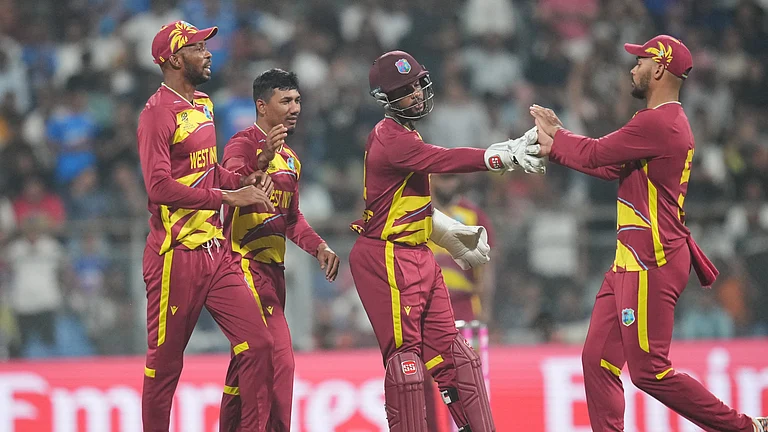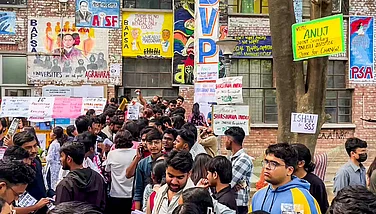You are in your 26th year with XLRI. What changes have you seen in terms of education delivery since the turn of the century?
The methods and techniques of academic delivery over the years have been influenced most by the changing criteria of selection and the difference in the profile of students. About 20-30 years back, about 15-20 percent of our incoming batch would have some experience of about two years. If somebody with around seven years would apply, we would not consider them for selection. We would instead tell the applicant that they would be better served in the General Management Programme. Today, 70-80 percent have at least two years of work experience. They appear for the same entrance exam of course, but in the interviews, greater weightage is given to candidates with work experience – this is a huge change in the selection criteria.
This aligns with the way management education is delivered worldwide. In the United States of America for instance, one is not eligible to enroll in most prestigious MBA programmes if one is a fresher. This is because they do not want an MBA student to study in the same way they studied for their Bachelor’s Degree as MBA education is practice-led, not doctrine and dogma.
In MBA pedagogy, case studies, role play, exercises, simulation, online gaming – all of these are part of our practice.
What about the General Management Programme today?
This has always been for working executives, with the criterion being a minimum of five years of work experience. But on an average, the median experience will be seven-eight years. As this is a full-time residential course, usually they leave their jobs as not many companies would allow this.
Now, this one-year full-time residential programme for working professionals started in 1997 – much ahead of any IIM. So, XLRI is not just the first B-School to be established in independent India. It has also been first in offering programmes and initiatives.
Not just the first, we are also among the best. Within four years, that is 2001-2002, we were training more than a 1000 executives. Students came from Mumbai, Delhi, Kolkata, in fact from all over the country. And some from foreign countries as well – from the Middle East, Nepal, as well as other countries in the subcontinent as well as South East Asia. This has only increased, especially with the enhancement of connectivity. And the sole reason is the quality of academic delivery.
For instance, we had Fr Mathias, who used to take a public speaking course. He was actually the UN representative for India when Indira Gandhi was our Prime Minister. So, we have always had teachers of that stature. There is also peer learning and the culture of training. We always tell junior faculty members to sit in on the classes of senior faculty members to get a feel of the place, get an idea of the culture, how we interact with the students. Otherwise, all content is there in books and journals and now, the internet. Education delivery is much beyond that and which only comes from observation and inculcation – something we follow here at XLRI.
What about research scholars – what is the support system for research and publications?
Concerted efforts to expand the research ecosystem actually started from 2010. By research ecosystem, we mean more people in the FPM programmes. This is not just another programme. While today, the number of doctoral scholars is significantly higher than before, it is one area that we want to work on further. We want to recruit people who have demonstrated research output. I must also mention here that in India, R&D was never in place and especially not in the Management Schools.
To get quality scholars, the institute’s offering must also be substantial. Today, the stipend we pay is respectable and as a result, we have some good work happening.
Coming to the tangibles, our A category, A Star-category publications have gone up significantly in number. In fact, in the last 10-12 years, the increase would be around ten times! It’s not that earlier people were not directing their energies towards this but today, it has been systemized with incentivization and rewards.
As Dean Academics, can you tell us how aligned XLRI is with the National Education Policy (NEP) 2020? What are the challenges in aligning with NEP?
There are two aspects to this question and its answer. The first is the structural aspect. There are two options and we thought ‘Deemed University’ is the route to take. However, a second option is emerging – we can retain our PGDM status and still align with AICTE norms and NEP mandates.
There are more than 3500 management institutes but if you consider the top 100 to 200, the contribution of these institutes to the economy in terms of generating the right kind of workforce, is huge.
Another aside: When I joined here, I was the 28th faculty member and we were approaching the Golden Jubilee. Today I am in the middle of Platinum Jubilee Year and today, we have about 82 faculty members only at the XLRI Jamshedpur campus.
What is the second aspect?
Very important if the institutes compliance with statutory obligations and the documentation of that compliance. For instance, when we filled up forms for accreditation organisations, we realized that thanks to the visionaries who started the institute, we’ve been following what is now mentioned as ‘due process’, almost since our inception!
For instance, the AMBA accreditation or even the AACSB American Associate College, Indian School of Business that we got for the first time in 2016 and the second time in 2021, just set out a process of documentation that we had been following for about 30 years at that point in time. All these requirements serve to document our practices.
Academically, what makes XLRI different?
We encourage pedagogical innovations because we understand that these are key differentiators in delivery of the XLRI experience.
In fact, we have a centre for learning and teaching innovations where pedagogical innovations are documented, experienced faculty share tips, share with the class, and share with other colleagues. In fact, we have also opened up our learnings for educators of other institutes as Faculty Development Programmes so that these competencies spread to other schools.
We do all this because we at XLRI believe in the cause of spreading education for the greater good.


























